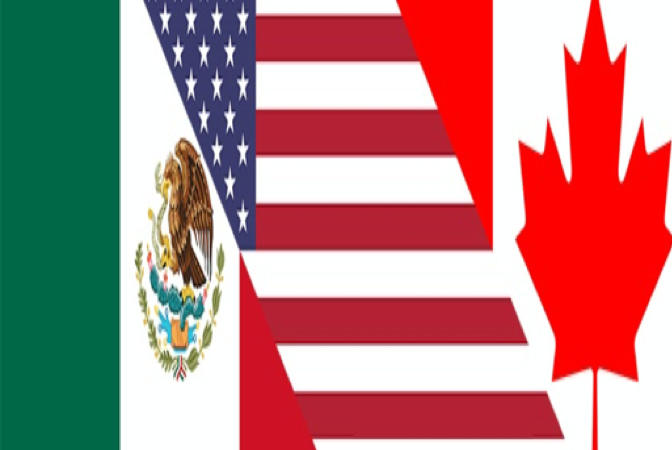The USMCA International Trade Commission Report: IP is A Big Win for the American Economy
The U.S. International Trade Commission recently released its analysis on the USMCA, and the prediction for American jobs and GDP is more than hopeful.
The report predicts the USMCA to raise the United States’ real Gross Domestic Product by $68.2 billion, create 176,000 new jobs, and boost exports to Canada by $19 billion and by $14 billion to Mexico. The USMCA will have a positive impact on all broad industry sectors.
U.S. manufacturing is expected to see the largest percentage gains in output, exports, wages, and employment; while the services sector will benefit the most in total output and employment. There is also good news in the intellectual property rights and digital services sectors.
For example, on international data transfers and E-commerce, the report states that:
If enacted, USMCA would be the first U.S. free trade agreement to include a chapter on digital trade, although prior agreements such as the United States-Korea Free Trade Agreement have included e- commerce chapters with narrower scopes. USMCA’s provisions that reduce policy uncertainty regarding international data transfers and data localization are estimated to have a significant, positive impact on industries that rely on cross-border data flows. The provisions related to international data transfers are crosscutting in nature and apply broadly to U.S. firms across the economy. These provisions apply to traditional data-intensive internet firms as well as to broader services, manufacturing, and agricultural industries that rely on data and information flows in their business models, supply chains, and international trade.
Securing the ability to transfer data across borders is important because, as the report notes, data “facilitates the automation and monitoring of industrial production and agriculture, the operation of supply chains, and access to global marketplaces.” More and more industries are becoming data-intensive, rules that all data flows to operate uninterrupted are the type of rules that will propel businesses in the USMCA region into the future.
On intellectual property rights, the report states that:
The Commission assesses that full implementation and enforcement of the IPR chapter’s provisions would benefit U.S. industries that rely on IPR protections. The agreement would strengthen protections in major IPR categories such as trade secrets, regulatory data protection, patents, trademarks, copyrights, and civil, criminal, and administrative enforcement.
The Commission measured the impact of the IP provisions against six IPR intensive industries: “analytical instruments, biopharmaceuticals, chemicals, information and communications technology, medical devices, and production technology.” Below is a table from the Commission’s report illustrating the key changes to the IPR provisions in the USMCA:
Source: ITC Report
Parallel to the trend in data-intensive trade, the same phenomenon is occurring in regard to intellectual property. More industries are producing IP-intensive products redirecting traditional global value chains to favor innovation ecosystems with high-skilled workers and robust IP protections. Clearly, the provisions in the USMCA secure North America as a top spot in these new innovation value chains for the present and in the decades to come.
In response to the report’s release U.S. Trade Representative Rober Lighthizer said “there can be no doubt that the USMCA is a big win for America’s economy.” The next step in the approval process is for the White House to submit the final text of the deal to Congress to prepare for implementation legislation.

